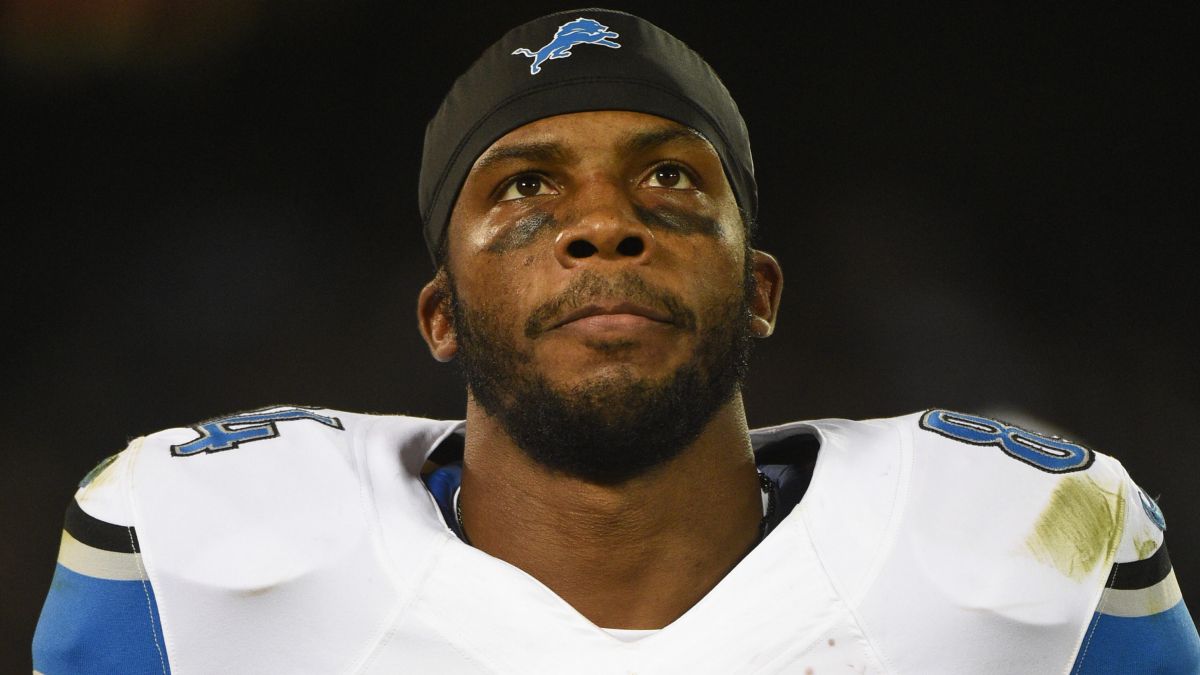I don’t think I’ve ever written about money before — certainly not for The Wisdom Daily — and not so often about sports either, but today I am writing about both. When I discovered the story of NFL wide receiver, Ryan Broyles, I felt like I had no choice, in the best and most inspiring sense of the word. His story speaks to me as a husband, father, worker, employer, and perhaps most transparently, as one who values financial responsibility while trying not to let “responsibility” become a code word for worrying about what is beyond my control.
Broyles chooses to live on 60,000 dollars a year, rather than than the 600,000 that was the gross total of his last contract. That’s right, he voluntarily chose to live on 10% of what he earned. Okay, that’s a bit of an exaggeration as the 60k is after-tax money, and the 600 is pre-tax, which means it’s more like choosing to live on 100 or 120, but still. And believe me, he is not living like a monk, either.
To be clear, I appreciate that he is starting from a place of relative luxury in a country where the median income is $51,939, and that living on 20% of that is obviously not an option for one person, let alone a family. That said, we could all take a lesson from this young athlete. That he is not much more than half my age, makes it all the better. It’s never to early to practice what Ryan Broyles preaches.
What inspires me about Ryan Broyles are actually a number of insights and disciplines from which we can all learn, regardless of our financial circumstances, and they aren’t only about money either. Money is simply the place from which Broyles is training himself and teaching us about creating happier, more secure lives in the future without short-changing our ability to enjoy the present. And yeah, these are my distillations of his story, so feel free to adjust to your life and needs.
Lesson #1: Live in the moment but not only for the moment.
Make sure that you allocate appropriate resources to enjoy the present, but not without thinking about how to provide for yourself and those you love in the future.
Lesson #2: Remember that even though history does not always repeat itself, it certainly can.
Broyles was scared off the field by past injuries, but he planned based on his own past injuries and the fact that they could interrupt, or even end, his career.
Lesson #3: Paying full price is nothing to brag about.
There are almost always ways to spend less on the very same things, and doing that is almost always worth the effort. The key is the ‘almost’. There are certainly exceptions, but that doesn’t mean you shouldn’t consider the question before making the choice.
Lesson #4: Don’t go it alone.
As with most things in life, a loving partner makes all the difference in the world, especially when you don’t always agree and can learn to defer to each other’s wisdom and insight.
Lesson #5: Find mentors.
There are almost always people to whom we can turn, if we are really serious about learning. After all, it is rarely the case that we are the first to go through whatever it is we are going through, or that we can’t find people to share their wisdom about getting through it.
Lesson #6: Invest in experiences more than in things.
It can’t be repeated enough, especially as it invites us to find places to celebrate and live large, within the context of our capacity, of course. It’s not about stripping life down to ‘absolute necessity’. It is about investing in fulfilling ‘wants’ with an eye to how fulfilling them will leave us better off not only in the short-term, but in the long-term as well.
Thank you Ryan Broyles. I don’t even know you, but you are definitely now among my teachers.

